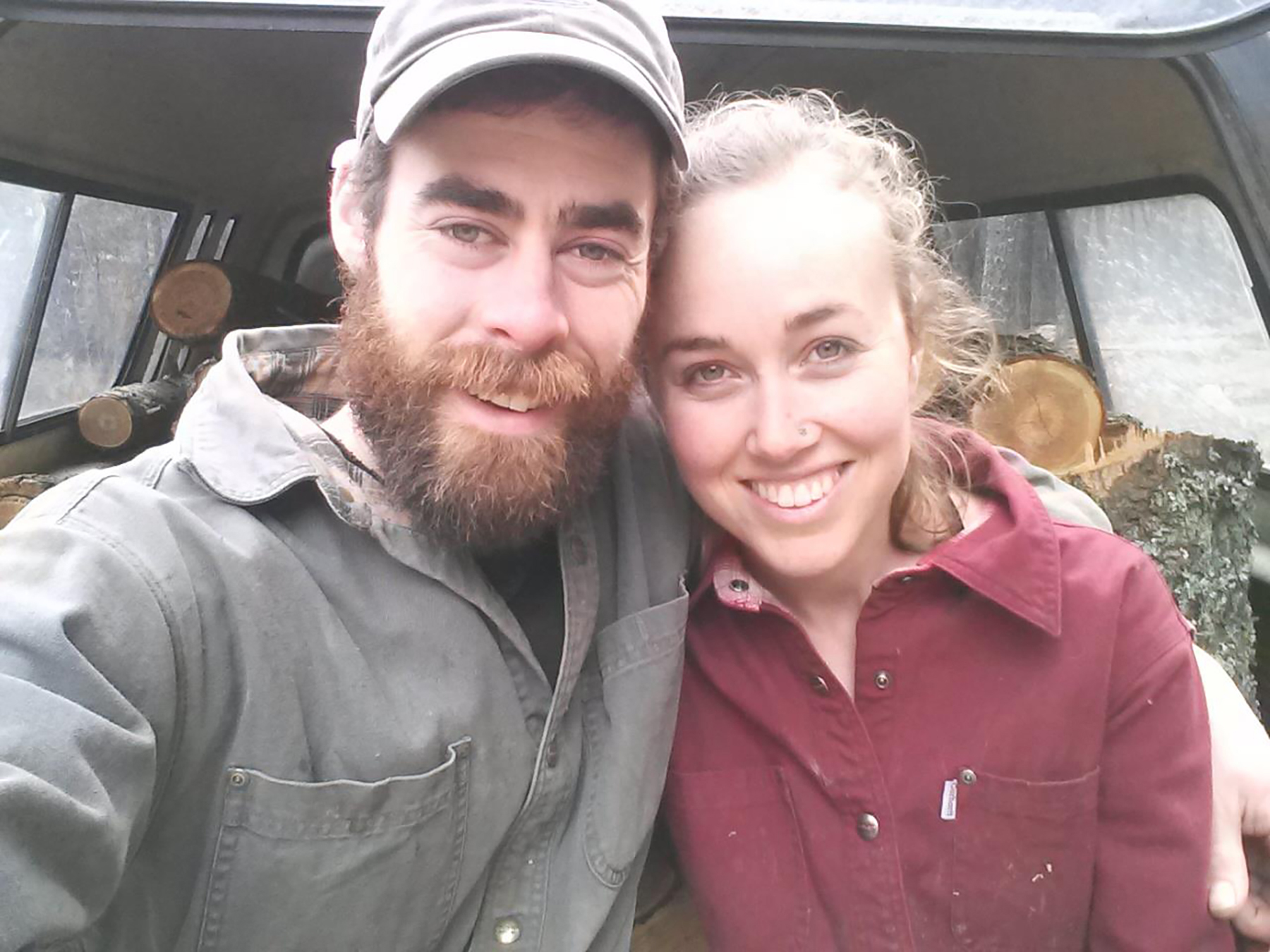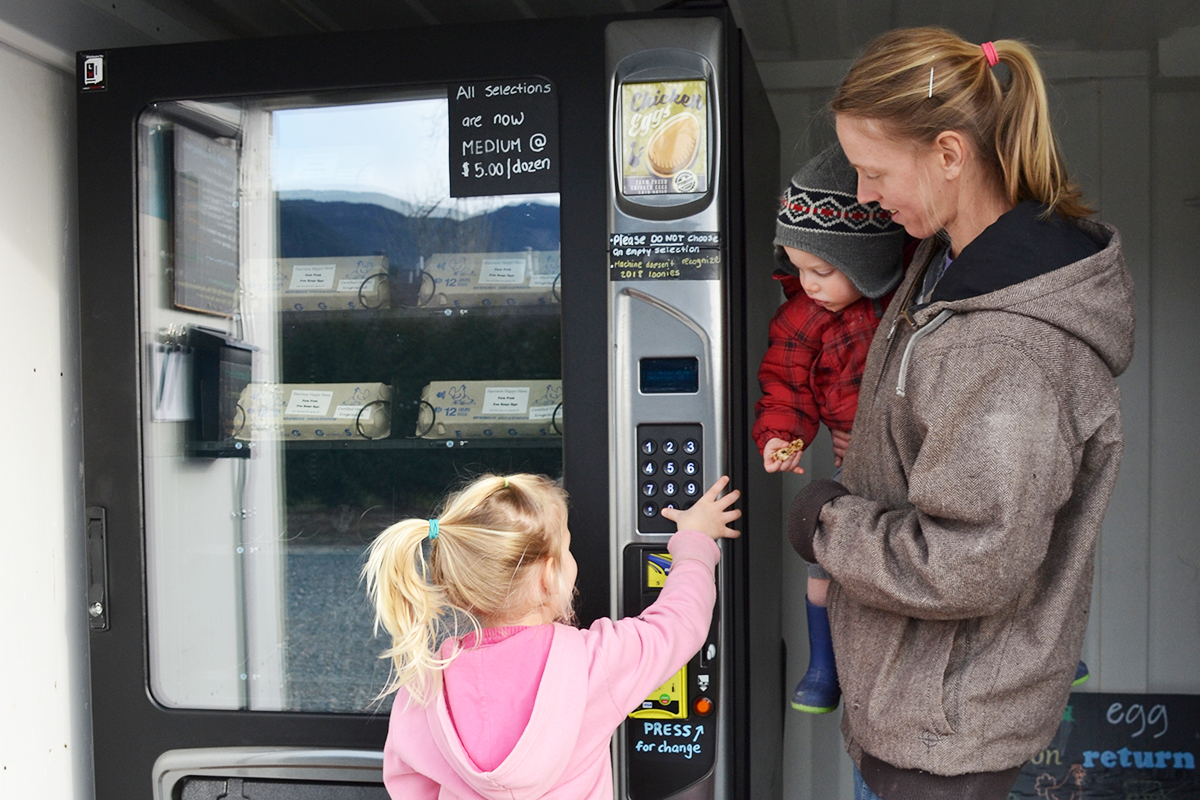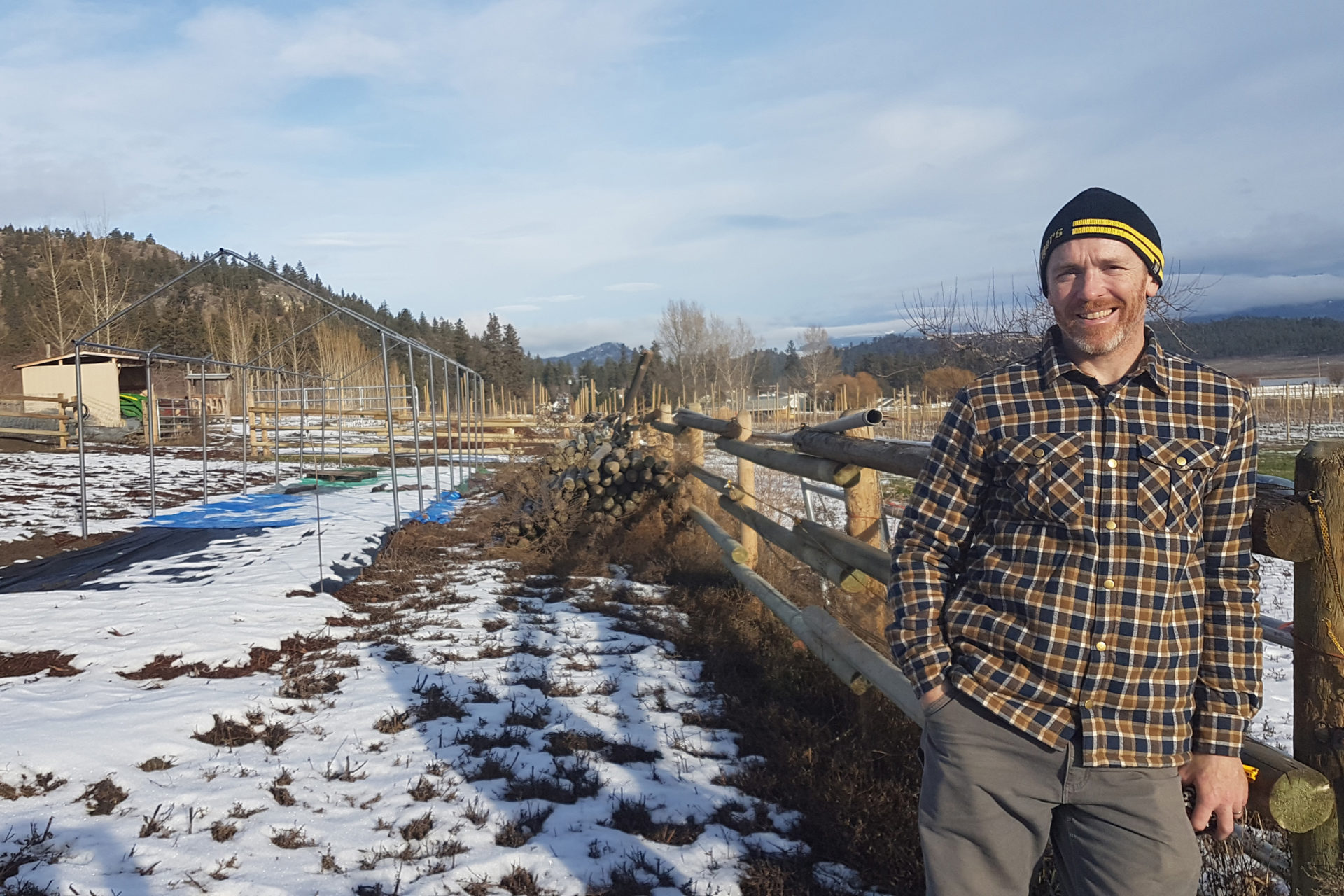LILLOOET – Spray Creek Ranch owners Tristan and Aubyn Banwell say becoming one of five BC farms certified by A Greener World (AGW), a five-year-old certification body based in Terrebonne, Oregon, has been worth the extra effort.
They opted for Certified Animal Welfare Approved and Certified Grassfed from AGW because it best aligns with their regenerative farming practices.
“When we looked at all of the different options for animal certifications, this is the one that most closely reflected the types of practices that we are putting in place on the farm,” Tristan Banwell explains. “The other certifications have their place but they didn’t cover all the innovative practices that we are doing on our farm. We felt this was the best match.”
The Banwells farm about 130 of their 260 acres. The ranch is home to 400 laying hens and ships 20 to 40 beef cattle to market annually, as well as 50 hogs, 2,000 chickens and 300 turkeys.
Spray Creek operates a Class D slaughter facility and uses an animal welfare-approved Class A slaughter facility for its pork and beef.
Raising multiple species makes the work more challenging when dealing with multiple types and levels of marketing boards and regulating bodies, but it works better for them than the commodity cow-calf operation that existed before they arrived in 2014.
“We had to look at ways to diversify and start direct marketing in order to be able to make a living from the farm. And that’s what we’re doing. So neither of us work off-farm. We focus 100% on our farm production,” Banwell says. “I think if we were working off farm we wouldn’t be able to move the farm forward as quickly as we are, obviously, because we dedicate all our time to it.”
The farm’s livestock is certified organic through the North Okanagan Organic Association but Banwell says third-party audits by AGW add an extra layer of trust to their business, of which three-quarters is direct-to-consumer sales.
“The fact that we have third-party audits on our practices means that consumers can look at those standards that we’re adhering to and know that the claims we’re making about our products have been verified by an independent third party,” Banwell adds.
The audits include comprehensive farm visits that look at all processes and procedures, a detailed lifecycle analysis of a product chosen at random from the farm’s receipts, and – for the animal welfare certification – witnessing a test slaughter of each species certified on the farm, and audits on any source farms supplying Spray Creek.
The paperwork required for the additional certifications is considerable but, with detailed records already required for its organic certification, expanding the farm’s record-keeping was simple.
“We feel like record-keeping is a really important part of running a business and running a farm, so we already keep really detailed and good records using different types of software tools,” Banwell explains. “So that makes our audit pretty easy.”
AGW communications and outreach director Emily Moose says AGW’s certifications, which also includes Certified Non-GMO, offer more transparency, improve customer loyalty and create more reliable markets for farmers.
Moose says sustainability to AGW refers to food production and distribution systems that work in harmony with the natural environment, ensure high animal welfare standards, provide fair and secure income for farms, and provide high-quality, nutritious and reasonably priced goods to consumers.
“Truly sustainable production systems satisfy the food needs of the present without compromising the ability of future generations to meet their own needs,” she says.
Lemieux Creek Ranch, Big Bear Ranch, Grassy Gnome Acres and Lost Savanna Farm are other BC producers certified by AGW, and Banwell thinks those numbers will only grow.
“It is the most rigorous and in-depth certification, I think, for animal welfare that’s available to farmers today. It’s gaining more traction in Canada,” he says.
Since starting in 2014, AGW has certified over 1,500 farms and ranches in North America, including about 150 in Canada, and over 6,000 globally. It recently launched in Europe and Africa.
“Canada currently accounts for about 10% of our work, but that rate is growing significantly and we expect that percentage to grow with the increased interest in third-party-certified labeling,” Moose says.


 Young farmers crack open new vending concept
Young farmers crack open new vending concept